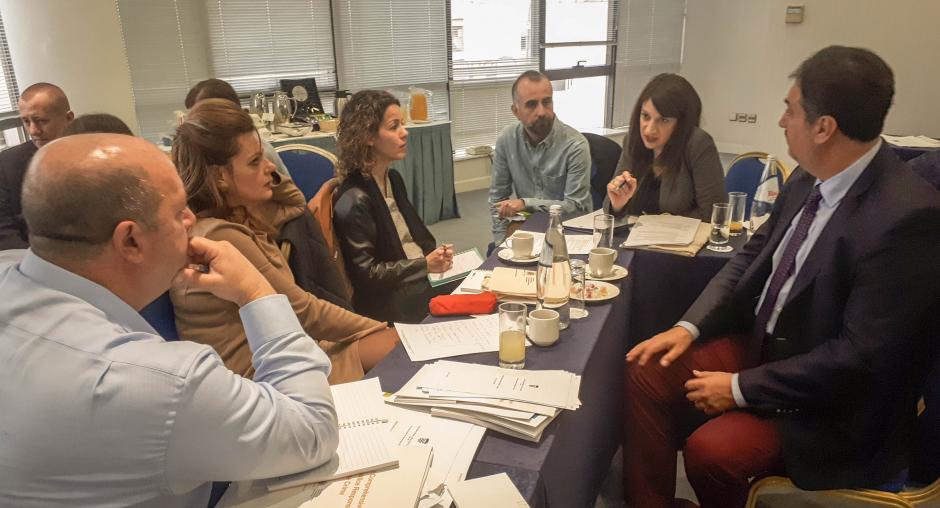ODIHR promotes good practices for government co-operation to address hate crime

Good practices for strengthening inter-agency co-operation to effectively address hate crimes were the focus of a training session organized by the OSCE Office for Democratic Institutions and Human Rights (ODIHR) and the Ministry of Justice, Transparency and Human Rights of Greece on 27 and 28 March 2019 in Athens.
Participants from 14 OSCE participating States, representing government institutions, equality bodies and civil society, as well as OSCE field operations and the United Nations Refugee Agency (UNHCR) (14 women and 12 men), learned how to secure the support of diverse actors, conduct a baseline assessment, draft an inter-agency agreement and ensure its sustainable implementation.
“This workshop is an opportunity to share the expert knowledge and real, hands-on experience our partners and ODIHR developed when drafting the inter-agency agreement on addressing hate crimes here in Greece as part of the ODIHR project ‘Building a Comprehensive Criminal Justice Response to Hate Crime’,” said Tome Shekerdjiev, the project manager. “By demonstrating the success of this approach to people from so many different countries, we hope to provide a positive example for other states to emulate.”
Maria Giannakaki, Secretary General at the Ministry of Justice, Transparency and Human Rights of Greece, said: “The inter-agency agreement we signed in 2018 gave us the legal basis for a co-ordinated effort against hate crimes. It raised awareness across the government, improved recording systems and ensured better support for victims. The agreement is a result of collective work and negotiations within the government and of close co-operation with civil society. I am pleased to share this experience and good practice with other officials from across the OSCE region.”
Developing inter-agency co-operation plans to address hate crime is one component of a new ODIHR toolkit. The toolkit also includes training packages for police and prosecutors, methodologies and guidelines on how public institutions and civil society can address hate crime based on the project's experience in Bulgaria, Greece, Italy and Poland.
